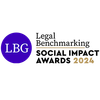Case Study: Admissibility of late-filed facts and evidence during Opposition Proceedings

The European Patent Convention requires that when a patent is opposed, the facts and evidence presented in support of the grounds of opposition must be submitted as part of the Notice of Opposition, which must be filed within nine months of the publication of the mention of grant of the patent. Any facts or evidence submitted after this deadline (for example experimental data or prior art documents) will only be admitted to proceedings at the discretion of the relevant department, that is, the Opposition Division (OD) or the Board of Appeal (BoA).
Ideally, therefore, all prior art searches and any experimental work carried out by the opponent will be completed in good time before the opposition deadline. Of course, real life is not quite so tidy, and in practice, the submission of late-filed facts and evidence is a common occurrence during opposition proceedings (whether at first instance before the OD or later before the BoA), and the admissibility of these late-filed submissions is often a subject of considerable debate.
The BoA decision T 2734/16, issued in 2020, provides an interesting case study in this regard, as it considers three different instances of late-filed documents, which are discussed individually in the decision.
New submissions made during oral proceedings before the OD
During oral proceedings before the OD, the opponent made a new attack on inventive step, based on two documents that had been filed by the patentee in response to the Notice of Opposition (lack of inventive step had already been raised as a ground of opposition in the Notice of Opposition, based on other documents).
The OD considered that these documents had been submitted by the patentee merely to clarify certain aspects of the claim terminology, and that they were late-filed in relation to the issue of inventive step. The OD then decided that the documents were not admissible into proceedings in relation to inventive step, as they were considered to be no more relevant to this issue than other documents submitted within the opposition deadline, and thus would have no effect on the OD’s decision.
This aspect of the OD’s decision was reversed by the BoA, who found that in the interest of equal treatment of the parties, the opponent was entitled to form its own opinion of the documents submitted by the patentee and to use them as the basis for a new attack, even if they were no more relevant than the originally-filed prior art. This finding is in line with the general approach taken during opposition proceedings, that late-filed submissions are admissible, if they are made in direct reaction to a submission from another party.
New prior art submitted during the written procedure before the BoA
At a fairly late stage in the written procedure before the BoA, the opponent submitted two new patent documents as prior art to support its arguments in relation to inventive step. The submissions were made after the first round of correspondence (that is, the opponent/appellant had previously filed the Notice of Appeal and Grounds of Appeal, and the patentee/respondent had submitted its response), but before the issuance of a summons to oral proceedings by the BoA. At that point, over 3 years and 8 months had passed since the opposition deadline.
In order to decide whether to admit the documents into proceedings, the BoA considered the relevance of the documents and the reasons given by the opponent for their late submission, namely that the patent documents were only available in the Japanese language (since no corresponding applications had been published outside Japan) and had only been identified by chance in the examination procedure on a different case.
The BoA did not admit the two documents, for the following reasons:
- The documents were not found to be prima facie relevant to the proceedings, since claim 1 of the patent was directed to an automotive milling machine, whereas the submitted documents disclosed other forms of construction machinery. Additionally, various highlighted features of the prior art documents performed a different function to the corresponding features of the claimed invention;
- The fact that the prior art documents were only available in Japanese did not excuse their late submission: as stated by the BoA, the EPO does not distinguish between prior art documents filed in different languages (as long as a translation is provided in an official EPO language where necessary) and it is the parties’ responsibility to carry out searches for relevant documents in a timely manner;
- Additionally, the BoA noted that two of the documents submitted with the Notice of Opposition came from Japan, and that the opponent should therefore have been aware that Japanese companies were active in the technical field of the patent and should have directed its searches accordingly.
This finding is in line with the general approach taken during opposition proceedings, namely that late-filed documents are unlikely to be admitted if they cannot shown to be prima facie relevant, and demonstrates that this approach is likely to be maintained, even if it can be shown that the documents were difficult to identify in a routine search.
New prior art submitted during oral proceedings before the BoA
During oral proceedings before the BoA, the opponent submitted a new patent document. This document was submitted as evidence of the common meaning of a term in the claims, and reference was made to a single paragraph and a single figure of the document.
The BoA admitted this document into proceedings for this specific purpose, as it was considered merely to provide evidence of background knowledge.
Comments
This case study sets out three different approaches taken by an OD and BoA in relation to the issue of late-filed documents. We note that the appeal case was decided under the 2007 version of the Rules of Procedure of the Boards of Appeal, which was superseded by a new version on 1 January 2020. However, it is not clear that the application of the new Rules would have made a significant difference to the outcome of this case.
In recent years, the ODs and BoAs have shown an increasing tendency not to admit late-filed facts and evidence, and this has been formalised in the new Rules of Procedure of the Boards of Appeal. Therefore, the pressure on parties to prepare and submit all their facts and evidence at the start of opposition proceedings continues.


















